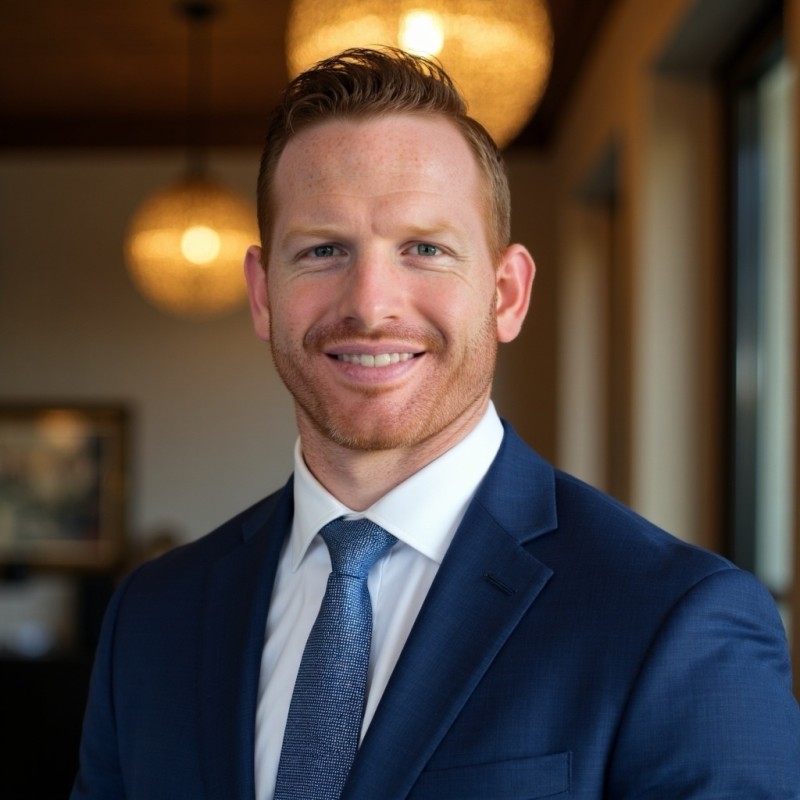Shield the Vulnerable: Untold Stories - How Emotional Intelligence Shapes True Leadership

In a world defined by constant change and uncertainty, the need for emotionally intelligent leadership has never been more urgent. In this episode of Shield the Vulnerable: Untold Stories, host Dave sits down with Brent Yonk, Section Chief for the FBI Counterterrorism Division’s Technology and Data Innovation Section, and author of the Get Into Leadership Shape newsletter.
Their conversation explores how emotional intelligence and self-awareness form the foundation of authentic leadership—and why learning to lead yourself first is the cornerstone of leading others.
Leadership in a Chaotic World
Brent begins by addressing the world’s growing sense of chaos—social unrest, workplace stress, and digital overload—and how leaders can navigate it.
“When we’re asked, ‘Who’s the leader?’ rarely do we think of ourselves first,” Brent explains. “But by not recognizing our own leadership abilities, we give up much of the control that we still have—the ability to make decisions that shape the direction of our lives.”
Are Leaders Born or Made?
When asked whether leaders are born or made, Brent’s answer is both candid and insightful. “Every single person has the potential to be a leader,” he says. “Even deciding what to do next is leadership. But exceptional leaders are made—through awareness, reflection, and growth.” He explains that while we all have an innate capacity for leadership, it takes conscious effort and emotional maturity to develop it. Leadership isn’t a role you’re given—it’s a discipline you build, day by day.The Emotional Intelligence Advantage
Emotional intelligence (EI) is at the heart of Brent’s philosophy. He believes it’s the defining skill of effective leadership in today’s distracted, emotionally charged world. “Most people start and end their day scrolling through social media,” Brent says. “They’re letting chaos fuel their emotions. The key is to recognize those emotions and decide what to do with them.” For him, emotional intelligence isn’t about suppressing feelings—it’s about understanding them. EI allows leaders to pause before reacting, to make thoughtful choices rather than impulsive ones, and to connect with others through empathy and presence.Habits, Awareness, and Growth Through Discomfort
Brent draws parallels between leadership and physical fitness—a connection that inspired his Get Into Leadership Shape newsletter. “Discomfort is actually our friend,” he explains. “It’s the space where we grow. It’s the opportunity to prove to ourselves that we can be more tomorrow than we are today.” He emphasizes that emotional growth, like physical training, comes from consistent habits. The routines we form—how we begin our mornings, how we handle frustration, how we communicate—determine our ability to lead with intention. “You can’t control everything around you,” he says, “but you can control how you respond and what you feed your mind each day.”Reflection Over Reaction
A major takeaway from Brent’s message is the power of reflection. He encourages leaders to write down their thoughts and experiences as a tool for clarity and self-awareness. “When you write, you untangle your thoughts,” he says. “You begin to understand what’s influencing you, where your beliefs come from, and how you can realign them with your purpose.” He distinguishes between goals and purpose: “The goal isn’t to get—it’s to grow. When you focus on growth, success becomes a byproduct. Purpose sustains you even when goals fall short.”From ‘How Do I Benefit?’ to ‘How Can I Help?’
Brent challenges the conventional, self-centered approach to leadership by reframing a single, powerful question: How can I help? “The beauty of leadership,” he says, “is that it’s not about showing you’re the best—it’s about asking, ‘Where can I have an impact?’ When we come to the table with that mindset, conversations change, and so do outcomes.” He believes that this simple shift in thinking—from self-interest to service—can transform not just organizations but entire communities.The Future of Leadership
As the discussion draws to a close, Brent reflects on the future of leadership in an age dominated by algorithms, information overload, and emotional manipulation. “If people develop their internal leadership ability, self-awareness, and critical thinking, they become immune to manipulation,” he says. “Instead of asking how they benefit, they start asking how they can contribute. That mindset shift alone could change the way our entire society functions.” For Brent, leadership of the future isn’t about authority—it’s about awareness. It’s not about commanding others—it’s about cultivating clarity, empathy, and resilience within ourselves.Final Thoughts
Shield the Vulnerable: Untold Stories continues to bring forward conversations that challenge the way we think about leadership, humanity, and connection. Brent Yonk’s message is a timely reminder that leadership starts within. By developing emotional intelligence, embracing discomfort, and leading with empathy, we not only strengthen our workplaces but also build a culture of resilience, trust, and genuine human connection. Because in the end, true leadership isn’t about control—it’s about contribution. And when leaders choose to lead from the inside out, they help shield the vulnerable and shape a better world for everyone.Resources & Mentions
About Brent Yonk
Brent York is the Section Chief for the FBI Counterterrorism Division’s Technology and Data Innovation Section and author of the Get Into Leadership Shape newsletter. With extensive experience in leadership development and emotional intelligence, he helps individuals and organizations lead with clarity, empathy, and purpose. Brent’s mission is to empower others to recognize their inner leadership potential and transform growth through self-awareness and intentional action.

